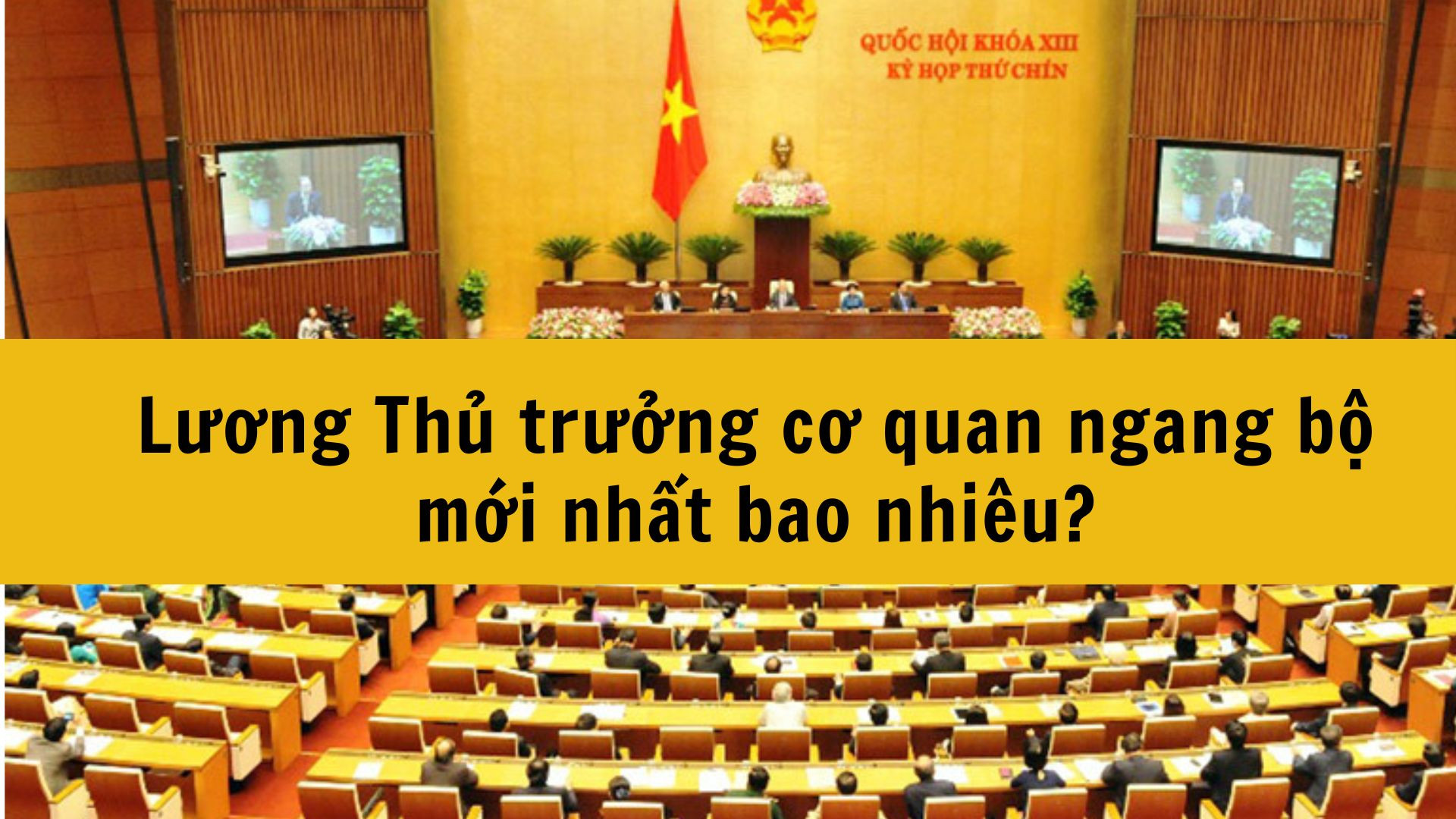 Tìm kiếm
Tìm kiếm
Chương IV Luật Tổ chức Chính phủ 2015: Nhiệm vụ và quyền hạn của bộ trưởng, thủ trưởng cơ quan ngang bộ
| Số hiệu: | 76/2015/QH13 | Loại văn bản: | Luật |
| Nơi ban hành: | Quốc hội | Người ký: | Nguyễn Sinh Hùng |
| Ngày ban hành: | 19/06/2015 | Ngày hiệu lực: | 01/01/2016 |
| Ngày công báo: | 27/07/2015 | Số công báo: | Từ số 865 đến số 866 |
| Lĩnh vực: | Bộ máy hành chính | Tình trạng: | Còn hiệu lực |
TÓM TẮT VĂN BẢN
Văn bản tiếng việt
Văn bản tiếng anh
Bộ trưởng, Thủ trưởng cơ quan ngang bộ là thành viên Chính phủ và là người đứng đầu bộ, cơ quan ngang bộ, lãnh đạo công tác của bộ, cơ quan ngang bộ; chịu trách nhiệm quản lý nhà nước về ngành, lĩnh vực được phân công; tổ chức thi hành và theo dõi việc thi hành pháp luật liên quan đến ngành, lĩnh vực trong phạm vi toàn quốc.
1. Tham gia giải quyết các công việc chung của tập thể Chính phủ; cùng tập thể Chính phủ quyết định và liên đới chịu trách nhiệm các vấn đề thuộc thẩm quyền của Chính phủ.
2. Đề xuất với Chính phủ, Thủ tướng Chính phủ các chủ trương, chính sách, cơ chế, văn bản pháp luật cần thiết thuộc thẩm quyền của Chính phủ, Thủ tướng Chính phủ; chủ động làm việc với Thủ tướng Chính phủ, Phó Thủ tướng Chính phủ về công việc của Chính phủ và công việc khác có liên quan; chịu trách nhiệm về toàn bộ nội dung và tiến độ trình các đề án, dự án, văn bản pháp luật được giao.
3. Tham dự phiên họp Chính phủ và tham gia biểu quyết tại phiên họp Chính phủ.
4. Thực hiện các công việc cụ thể theo ngành, lĩnh vực được phân công hoặc ủy quyền của Chính phủ, Thủ tướng Chính phủ. Chỉ đạo, hướng dẫn, kiểm tra việc thi hành pháp luật, việc thực hiện chiến lược, quy hoạch, kế hoạch, chương trình và các quyết định của Chính phủ, Thủ tướng Chính phủ về ngành, lĩnh vực được phân công.
5. Thực hiện các nhiệm vụ khác do Thủ tướng Chính phủ ủy quyền.
1. Lãnh đạo, chỉ đạo và chịu trách nhiệm cá nhân về mọi mặt công tác của bộ, cơ quan ngang bộ; chỉ đạo các đơn vị trực thuộc tổ chức triển khai thực hiện chiến lược, quy hoạch, kế hoạch, chương trình, dự án đã được phê duyệt, các nhiệm vụ của bộ, cơ quan ngang bộ được Chính phủ giao.
2. Quyết định theo thẩm quyền hoặc trình Chính phủ, Thủ tướng Chính phủ các vấn đề thuộc chức năng, nhiệm vụ, quyền hạn của bộ, cơ quan ngang bộ mà mình là người đứng đầu.
3. Đề nghị Thủ tướng Chính phủ việc bổ nhiệm, miễn nhiệm, cách chức, cho từ chức Thứ trưởng hoặc Phó Thủ trưởng cơ quan ngang bộ.
4. Ban hành văn bản quy phạm pháp luật theo thẩm quyền để thực hiện chức năng, nhiệm vụ quản lý nhà nước đối với ngành, lĩnh vực được phân công; ban hành hoặc trình Chính phủ, Thủ tướng Chính phủ ban hành chính sách phát triển ngành, lĩnh vực được phân công.
5. Thực hiện việc tuyển dụng, bổ nhiệm, miễn nhiệm, cách chức, điều động, luân chuyển, đánh giá, quy hoạch, đào tạo, bồi dưỡng, khen thưởng, kỷ luật cán bộ, công chức, viên chức và thực hiện phân cấp quản lý công chức, viên chức đối với các tổ chức, đơn vị trực thuộc theo quy định của pháp luật.
6. Quyết định phân cấp cho chính quyền địa phương thực hiện một số nhiệm vụ liên quan đến ngành, lĩnh vực được giao quản lý theo phạm vi lãnh thổ; phân cấp, ủy quyền cho các tổ chức, đơn vị trực thuộc.
7. Quyết định chương trình nghiên cứu khoa học, công nghệ, ứng dụng tiến bộ khoa học, công nghệ; các tiêu chuẩn, quy trình, quy phạm và các định mức kinh tế - kỹ thuật của ngành, lĩnh vực thuộc thẩm quyền.
8. Quyết định thành lập các tổ chức phối hợp liên ngành, tổ chức sự nghiệp công lập theo quy định của pháp luật.
9. Bổ nhiệm, miễn nhiệm, cách chức, cho từ chức, đình chỉ công tác, khen thưởng, kỷ luật người đứng đầu, cấp phó của người đứng đầu tổ chức, đơn vị trực thuộc.
10. Lãnh đạo, chỉ đạo công tác thanh tra, kiểm tra việc thực hiện các quy định của pháp luật đối với ngành, lĩnh vực trong phạm vi toàn quốc.
11. Quản lý và tổ chức sử dụng có hiệu quả công sở, tài sản, phương tiện làm việc và tài chính, ngân sách nhà nước được giao; quyết định biện pháp tổ chức phòng, chống tham nhũng, thực hành tiết kiệm, chống lãng phí và các biểu hiện quan liêu, hách dịch, cửa quyền trong ngành, lĩnh vực được phân công.
12. Lãnh đạo, chỉ đạo việc thực hiện cải cách hành chính, cải cách chế độ công vụ, công chức trong ngành, lĩnh vực thuộc trách nhiệm quản lý nhà nước của bộ, cơ quan ngang bộ.
13. Chủ động phối hợp chặt chẽ với các cơ quan của Đảng, Quốc hội, Tòa án nhân dân tối cao, Viện kiểm sát nhân dân tối cao, Ủy ban trung ương Mặt trận Tổ quốc Việt Nam và cơ quan trung ương của các tổ chức chính trị - xã hội; giải trình về những vấn đề Hội đồng dân tộc, Ủy ban của Quốc hội quan tâm; trả lời chất vấn của đại biểu Quốc hội, kiến nghị của cử tri, kiến nghị của Mặt trận Tổ quốc Việt Nam và các tổ chức chính trị - xã hội về những vấn đề thuộc trách nhiệm quản lý.
14. Thực hiện những nhiệm vụ khác do Chính phủ, Thủ tướng Chính phủ giao.
1. Bộ trưởng, Thủ trưởng cơ quan ngang bộ hướng dẫn và kiểm tra, phối hợp với các bộ, cơ quan ngang bộ, cơ quan thuộc Chính phủ thực hiện các nhiệm vụ công tác thuộc ngành, lĩnh vực được phân công.
2. Bộ trưởng, Thủ trưởng cơ quan ngang bộ có quyền kiến nghị với Bộ trưởng, Thủ trưởng cơ quan ngang bộ khác đình chỉ việc thi hành hoặc bãi bỏ những quy định do các cơ quan đó ban hành trái với Hiến pháp, luật và văn bản của cơ quan nhà nước cấp trên hoặc của bộ, cơ quan ngang bộ về ngành, lĩnh vực do bộ, cơ quan ngang bộ chịu trách nhiệm quản lý. Trong trường hợp kiến nghị không được chấp thuận thì trình Thủ tướng Chính phủ quyết định.
1. Chỉ đạo, hướng dẫn, kiểm tra Ủy ban nhân dân các cấp thực hiện các nhiệm vụ công tác thuộc ngành, lĩnh vực được phân công hoặc Chính phủ, Thủ tướng Chính phủ giao.
2. Kiến nghị với Thủ tướng Chính phủ đình chỉ việc thi hành nghị quyết của Hội đồng nhân dân cấp tỉnh trái với Hiến pháp, luật và văn bản của cơ quan nhà nước cấp trên về ngành, lĩnh vực chịu trách nhiệm quản lý.
Đề nghị Ủy ban nhân dân, Chủ tịch Ủy ban nhân dân cấp tỉnh đình chỉ việc thi hành hoặc bãi bỏ những văn bản pháp luật của Ủy ban nhân dân, Chủ tịch Ủy ban nhân dân cấp tỉnh trái với các văn bản về ngành, lĩnh vực được phân công. Nếu Ủy ban nhân dân, Chủ tịch Ủy ban nhân dân cấp tỉnh không chấp hành thì báo cáo Thủ tướng Chính phủ quyết định.
1. Chịu trách nhiệm cá nhân trước Thủ tướng Chính phủ, Chính phủ và Quốc hội về ngành, lĩnh vực được phân công; về kết quả, hiệu lực, hiệu quả hoạt động của bộ, cơ quan ngang bộ; về các quyết định và kết quả thực hiện các quyết định của mình trong phạm vi nhiệm vụ, quyền hạn được giao; cùng các thành viên khác của Chính phủ chịu trách nhiệm tập thể về hoạt động của Chính phủ.
2. Thực hiện báo cáo công tác trước Chính phủ, Thủ tướng Chính phủ; giải trình, trả lời chất vấn trước Quốc hội, Ủy ban thường vụ Quốc hội.
3. Thực hiện chế độ báo cáo trước Nhân dân về những vấn đề quan trọng thuộc trách nhiệm quản lý.
1. Thứ trưởng, Phó Thủ trưởng cơ quan ngang bộ giúp Bộ trưởng, Thủ trưởng cơ quan ngang bộ thực hiện nhiệm vụ do Bộ trưởng, Thủ trưởng cơ quan ngang bộ phân công và chịu trách nhiệm trước Bộ trưởng, Thủ trưởng cơ quan ngang bộ về nhiệm vụ được phân công.
2. Số lượng Thứ trưởng, Phó Thủ trưởng cơ quan ngang bộ không quá 05; Bộ Quốc phòng, Bộ Công an, Bộ Ngoại giao không quá 06. Trong trường hợp do sáp nhập bộ, cơ quan ngang bộ hoặc do yêu cầu điều động, luân chuyển cán bộ của cơ quan có thẩm quyền thì Thủ tướng Chính phủ trình Ủy ban thường vụ Quốc hội xem xét, quyết định.
DUTIES AND POWERS OF MINISTERS AND HEADS OF MINISTRY-LEVEL AGENCIES
Article 32. Ministers and Heads of Ministry-level agencies
Ministers and Heads of Ministry-level agencies are cabinet members and head persons of Ministries, Ministry-level agencies, and lead tasks of Ministries and Ministry-level agencies; bear responsibility for the state management of assigned industries and sectors; organize and monitor the implementation of laws relating to industries and sectors across the country.
Article 33. Duties and powers of Ministers and Heads of Ministry-level agencies as cabinet members
1. Get involved in dealing with the Government’s collective tasks; collaborate with other members of the Government to make decisions and take joint responsibility for issues under the Government’s authority.
2. Propose necessary regulations, policies and documents under the Government’s authority to the Government and the Prime Minister; proactively work with the Prime Minister and Deputy Prime Ministers to deal with the Government's tasks and other relevant ones; take responsibility for all contents and progress of proposing assigned projects, proposals and documents.
3. Attend the Government’s meetings and take part in voting at the Government’s meetings.
4. Take on specific duties by industries or sectors assigned or delegated by the Government and the Prime Minister. Direct, provide guidance on, examine the enforcement of laws, implementation of strategies, proposals, programs and decisions of the Government and the Prime Minister in relation to assigned industries or sectors.
5. Perform other duties delegated by the Prime Minister.
Article 34. Duties and powers of Ministers and Heads of Ministry-level agencies as head persons of Ministries and Ministry-level agencies
1. Lead, direct and take sole responsibility for all aspects of work of Ministries and Ministry-level agencies; direct their affiliates to execute approved strategies, proposals, plans, programs or projects, and implement duties of Ministries and Ministry-level agencies assigned by the Government.
2. Decide within their jurisdiction or request the Government and the Prime Minister to decide issues under the functions, duties and powers of Ministries and Ministry-level agencies of which they are head persons.
3. Request the Prime Minister to appoint, discharge, dismiss or accept the resignation of Deputy Ministers or Vice Heads of Ministry-level agencies.
4. Issue legislative documents within their jurisdiction so as to perform functions or duties of state management of assigned industries and sectors; issue or request the Prime Minister to issue the policies on development of assigned industries or sectors.
5. Carry out the recruitment, appointment, discharge, dismissal, dispatch, alternation, assessment, planning, training, nurturing, rewarding and punishment of officials, civil servants and public employees, and decentralize powers to manage civil servants and public employees working for affiliates in accordance with legal regulations.
6. Decide the decentralization of powers to local governments to perform certain duties relating to industries or sectors within their remit; decentralize and delegate powers to affiliated organizations or agencies.
7. Decide programs for scientific and technological researches, and application of scientific or technological advances; standards, procedures and regulations as well an economic-technical norms in specific industries and sectors within their jurisdiction.
8. Decide establishment of interdisciplinary organizations and public non-business organizations in accordance with laws.
9. Appoint, discharge, dismiss, accept the resignation of, suspend, reward and punish head persons and their deputies of affiliates.
10. Lead and direct inspection and examination of the implementation of legal regulations in industries or sectors in the nation.
11. Manage and organize effective use of offices, assets and instruments used for work, allocated funds and state budgets; decide measures to prevent and combat corruption and carry out thrift practices and avoid extravagance as well as bureaucracy, imperious and authoritarian behaviors in assigned industries and sectors.
12. Lead and direct the implementation of administrative and civil service reforms in industries or sectors that fall within the state management of Ministries or Ministry-level agencies.
13. Proactively build a firm cooperation with organs of the Communist Party, the National Assembly, the Supreme People’s Court, the Supreme People’s Procuracy, the Central Committee of the Vietnam Fatherland Front Committee and central organs of socio-political organizations; give explanations for issues that the Ethnic Council and Committees of the National Assembly are interested in; answer questions posed by the National Assembly's elected deputies, recommendations of the electorate and the Vietnam Fatherland Front Committee and socio-political organizations in relation to issues that fall within their remit.
14. Perform other duties delegated by the Government and the Prime Minister.
Article 35. Duties and powers of Ministers and Heads of Ministry-level agencies in a relationship with Ministries, Ministry-level agencies and Government agencies
1. Ministers and Heads of Ministry-level agencies shall provide guidance on, examine and collaborate with Ministries, Ministry-level agencies and Government agencies to perform duties in assigned industries and sectors.
2. Ministers and Heads of Ministry-level agencies shall have the right to request the Ministers and Heads of other Ministry-level agencies to suspend the implementation or abolish regulations issued by these Ministries or agencies which are in breach of the Constitution, legislation, and documents issued by state agencies at the superior level, or Ministries or Ministry-level agencies on industries or sectors managed by these Ministries or Ministry-level agencies. In case the request is not accepted, the Prime Minister shall grant his decision on this.
Article 36. Duties and powers of Ministers and Heads of Ministry-level agencies in a relationship with local governments
1. Direct, provide guidance on and inspect the People’s Committee at all levels to perform duties within assigned industries and sectors, or those delegated by the Prime Minister.
2. Request the Prime Minister to suspend the enforcement of resolutions of the provincial People’s Council in breach of the Constitution, legislation, and documents issued by the state organs at the superior level on industries or sectors that fall within their remit.
Request the People’s Committee, the President of the provincial People’s Committee to suspend the implementation or abolish legislative documents issued by the People’s Committee, the President of the provincial People’s Committee in breach of documents on assigned industries and sectors. In case the People’s Committee or the President of the People's Committee at the provincial level refuses to accept these documents, a report should be submitted to the Prime Minister for his decision.
Article 37. Duties of Ministers and Heads of Ministry-level agencies
1. Take sole responsibility to the Prime Minister, the Government and the National Assembly for assigned industries and sectors; for the result, effect and performance of Ministries and Ministry-level agencies; for their decisions and results of implementation of their decisions within delegated duties and powers; collaborate with other cabinet members to bear collective responsibility for the Government's operations.
2. Be responsible to the Government and the Prime Minister; give explanations and answer questions in front of the National Assembly and National Assembly Standing Committee.
3. Report to the people on important issues within their management.
Article 38. Deputy Ministers and Vice Heads of Ministry-level agencies
1. Deputy Ministers and Vice Heads of Ministry-level agencies shall assist Ministers and Heads of Ministry-level agencies in performing duties assigned by Ministers or Heads of Ministry-level agencies, and bear accountability to Ministers and Heads of Ministry-level agencies for their assigned duties.
2. The number of Deputy Ministers and Vice Heads of Ministry-level agencies shall be restricted to a maximum of 05 persons; as for the Ministry of National Defense, the Ministry of Public Security and the Ministry of Foreign Affairs, this number is restricted to a maximum of 06 persons. In the event of merging of Ministries or Ministry-level agencies, or upon the request of competent authorities for dispatch or alteration of civil servants, the Prime Minister shall request the National Assembly Standing Committee to consider and make its decision on this.
Văn bản liên quan
Cập nhật
Bài viết liên quan
Lương Thủ trưởng cơ quan ngang bộ mới nhất 2025 bao nhiêu?

Lương Thủ trưởng cơ quan ngang bộ mới nhất 2025 bao nhiêu?
Năm 2025, lương của Thủ trưởng cơ quan ngang bộ đã có những thay đổi đáng chú ý nhằm đáp ứng yêu cầu công việc và đảm bảo chế độ đãi ngộ phù hợp với vai trò quan trọng trong việc điều hành và quản lý các lĩnh vực chuyên môn. Bài viết dưới đây sẽ cung cấp thông tin chi tiết về mức lương của Thủ trưởng cơ quan ngang bộ mới nhất trong năm 2025. 22/01/2025Thủ tướng Chính phủ Nước Cộng hòa xã hội chủ nghĩa Việt Nam do ai bầu ra?

Thủ tướng Chính phủ Nước Cộng hòa xã hội chủ nghĩa Việt Nam do ai bầu ra?
Trong bài viết này, chúng ta sẽ cùng khám phá một câu hỏi quan trọng về hệ thống chính trị Việt Nam. "Thủ tướng Chính phủ Nước Cộng hòa xã hội chủ nghĩa Việt Nam do ai bầu ra?" Qua đó, bài viết sẽ cung cấp cái nhìn tổng quan về quy trình bầu cử Thủ tướng, vai trò của Quốc hội trong việc xác nhận các chức danh lãnh đạo, cũng như ý nghĩa của cơ chế này đối với sự phát triển và ổn định của đất nước. 10/11/2024Thủ tướng Chính Phủ có thẩm quyền ban hành loại văn bản quy phạm pháp luật nào?

Thủ tướng Chính Phủ có thẩm quyền ban hành loại văn bản quy phạm pháp luật nào?
Theo quy định pháp luật, Thủ tướng Chính phú là người đứng đầu Chính phủ và hệ thống hành chính Nhà Nước. Từ đó, có thể thấy, Thủ tướng Chính phủ đóng một vai trò vô cùng quan trọng trong hoạt động quản lý hành chính Nhà Nước, đặc biệt là trong lĩnh vực ban hành văn bản quy phạm pháp luật. Vậy, Thủ tướng Chính phủ sẽ có thẩm quyền ban hành loại văn bản quy phạm pháp luật nào? Hãy cùng theo dõi bài viết sau để tìm được câu trả lời chính xác nhất. 10/11/2024Cơ cấu tổ chức của Chính phủ nước Cộng hòa xã hội chủ nghĩa Việt Nam? Người đứng đầu Chính phủ là ai?

Cơ cấu tổ chức của Chính phủ nước Cộng hòa xã hội chủ nghĩa Việt Nam? Người đứng đầu Chính phủ là ai?
Chính phủ nước Cộng hòa xã hội chủ nghĩa Việt Nam đóng vai trò then chốt trong việc quản lý và điều hành các hoạt động của nhà nước, đảm bảo thực hiện các chính sách phát triển kinh tế, xã hội và bảo vệ an ninh quốc phòng. Cơ cấu tổ chức của Chính phủ được xây dựng nhằm đáp ứng hiệu quả yêu cầu công việc trong bối cảnh phát triển đất nước. Trong bài viết này, chúng ta sẽ khám phá chi tiết về cơ cấu tổ chức của Chính phủ Việt Nam, cũng như vai trò và trách nhiệm của người đứng đầu Chính phủ, từ đó hiểu rõ hơn về sự lãnh đạo và quản lý trong hệ thống chính trị của nước ta. 25/09/2024Chính phủ là gì? Nhiệm vụ, quyền hạn của Chính phủ trong bộ máy nhà nước?


 Luật Tổ chức Chính phủ 2015 (Bản Word)
Luật Tổ chức Chính phủ 2015 (Bản Word)
 Luật Tổ chức Chính phủ 2015 (Bản Pdf)
Luật Tổ chức Chính phủ 2015 (Bản Pdf)